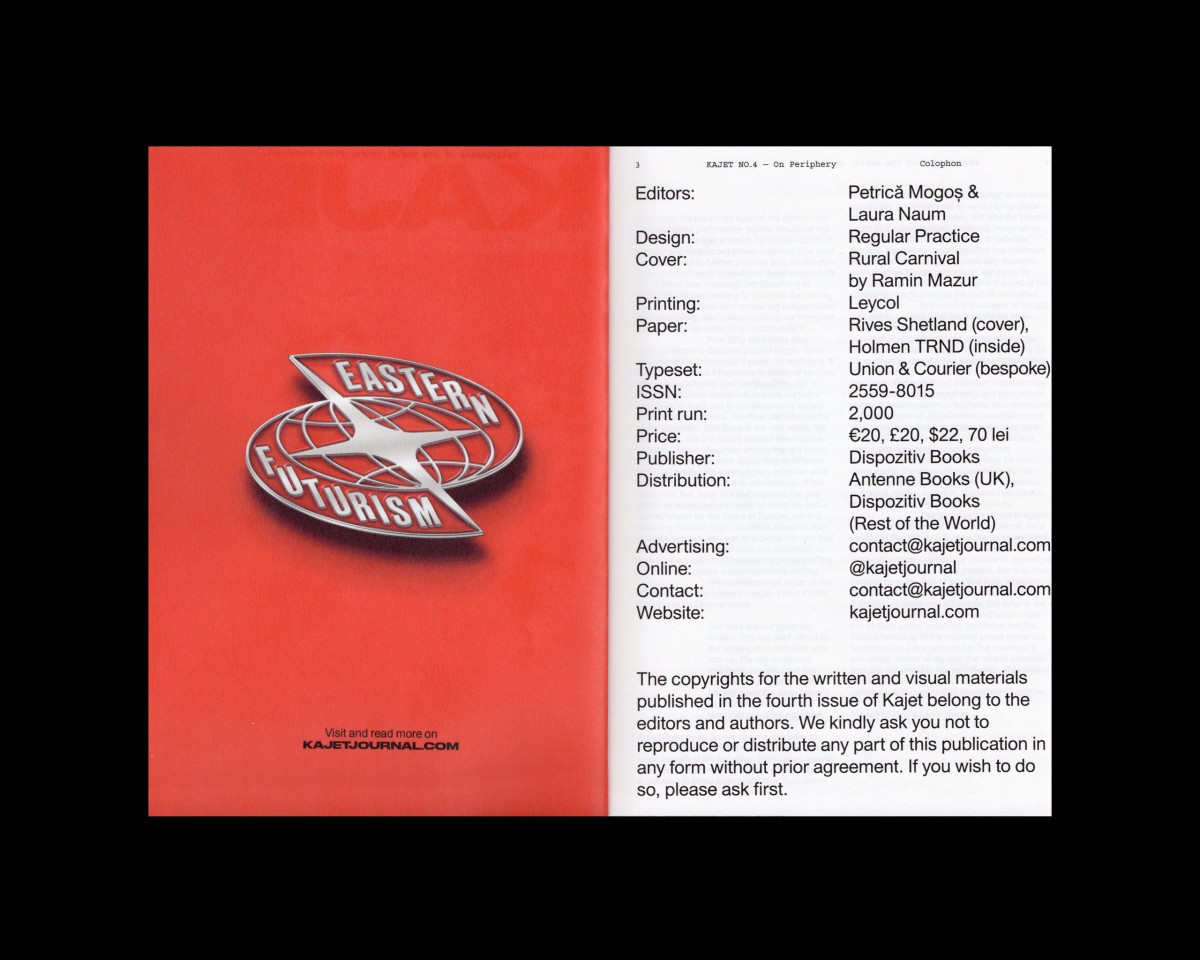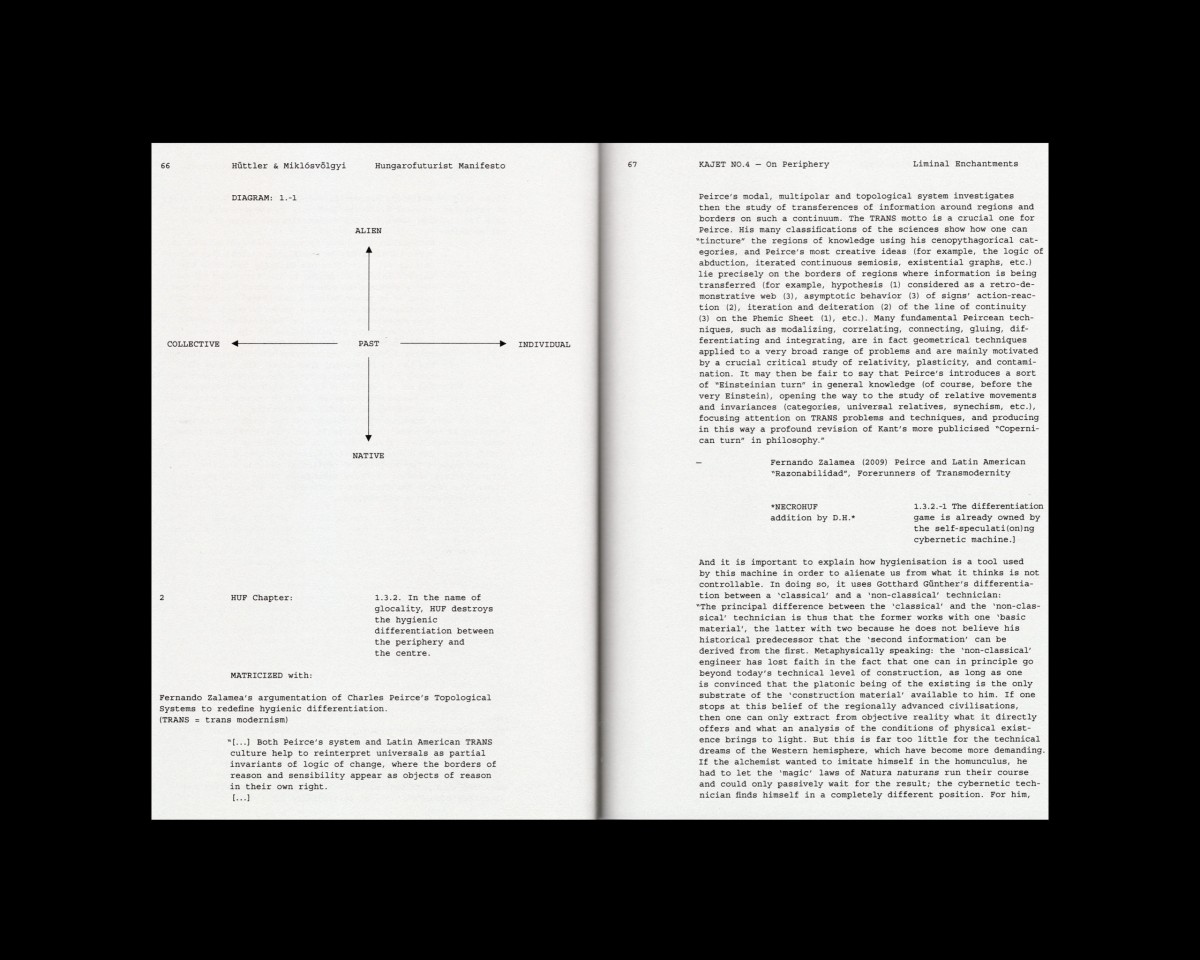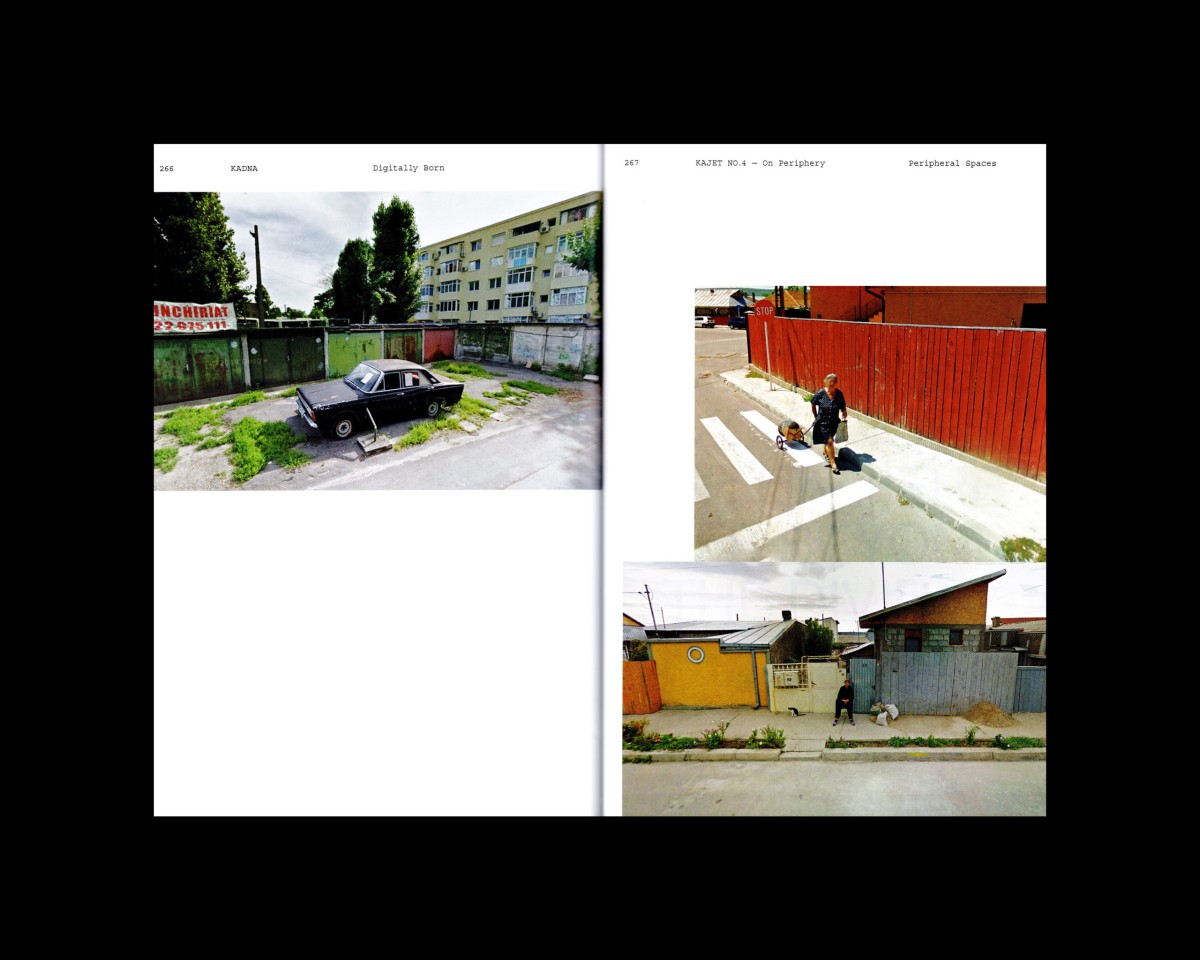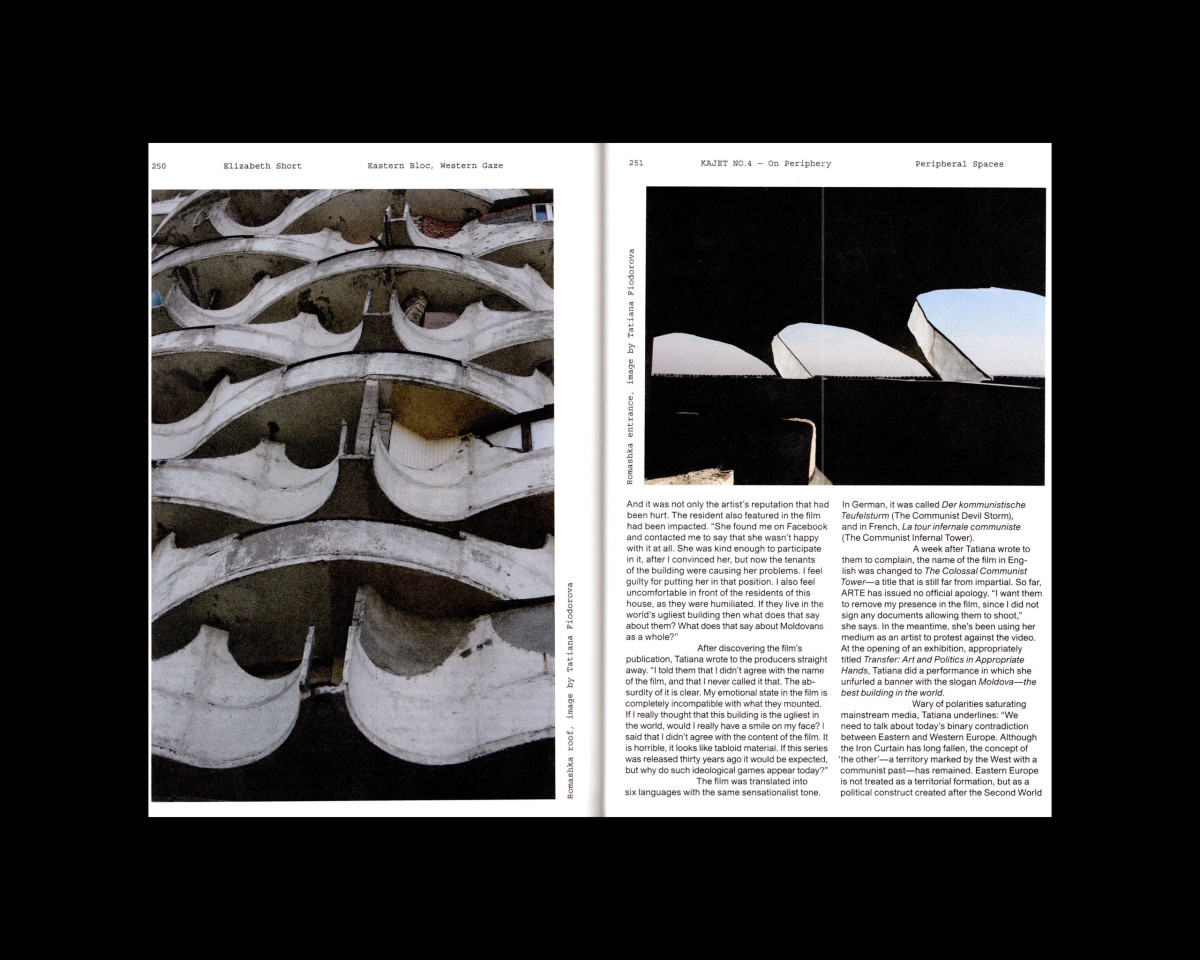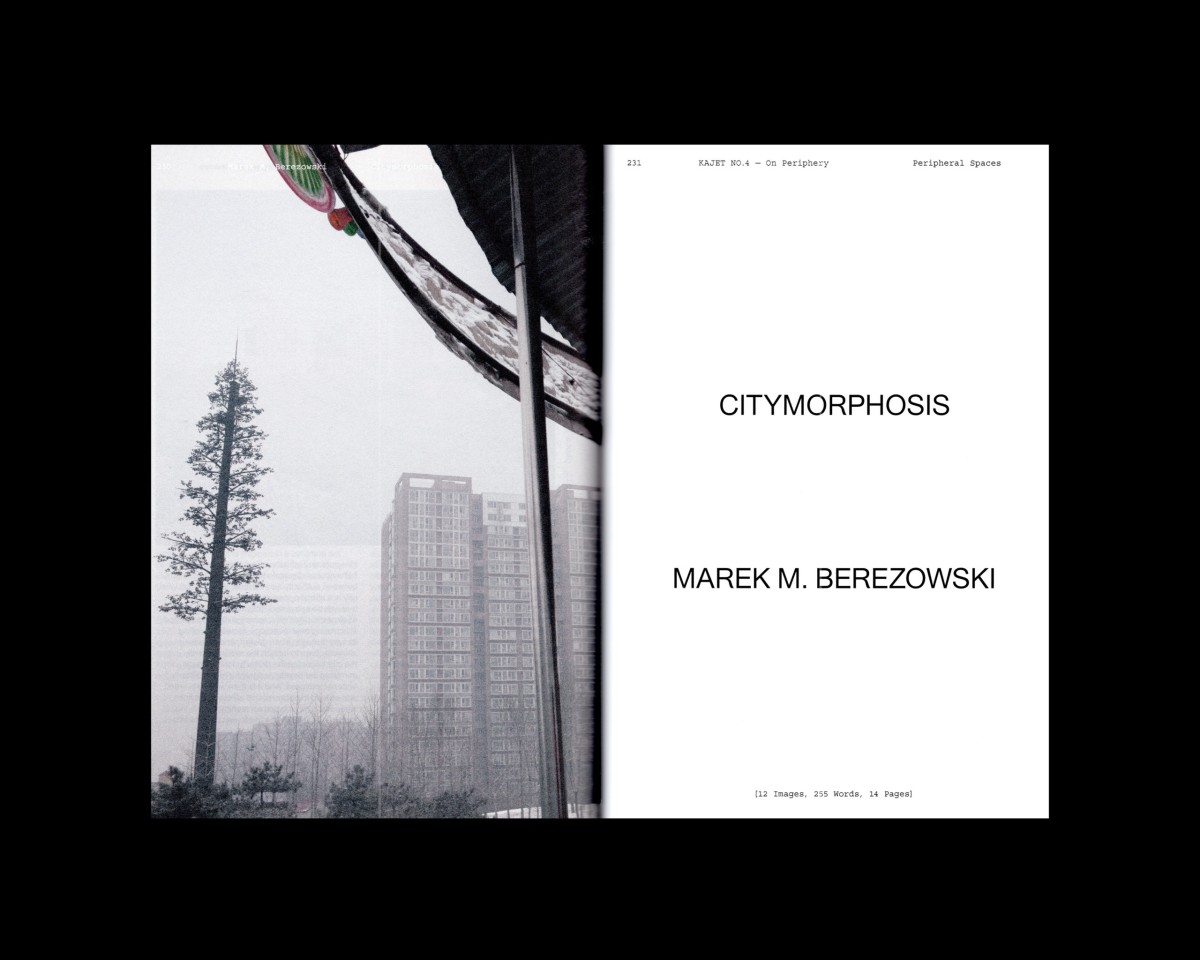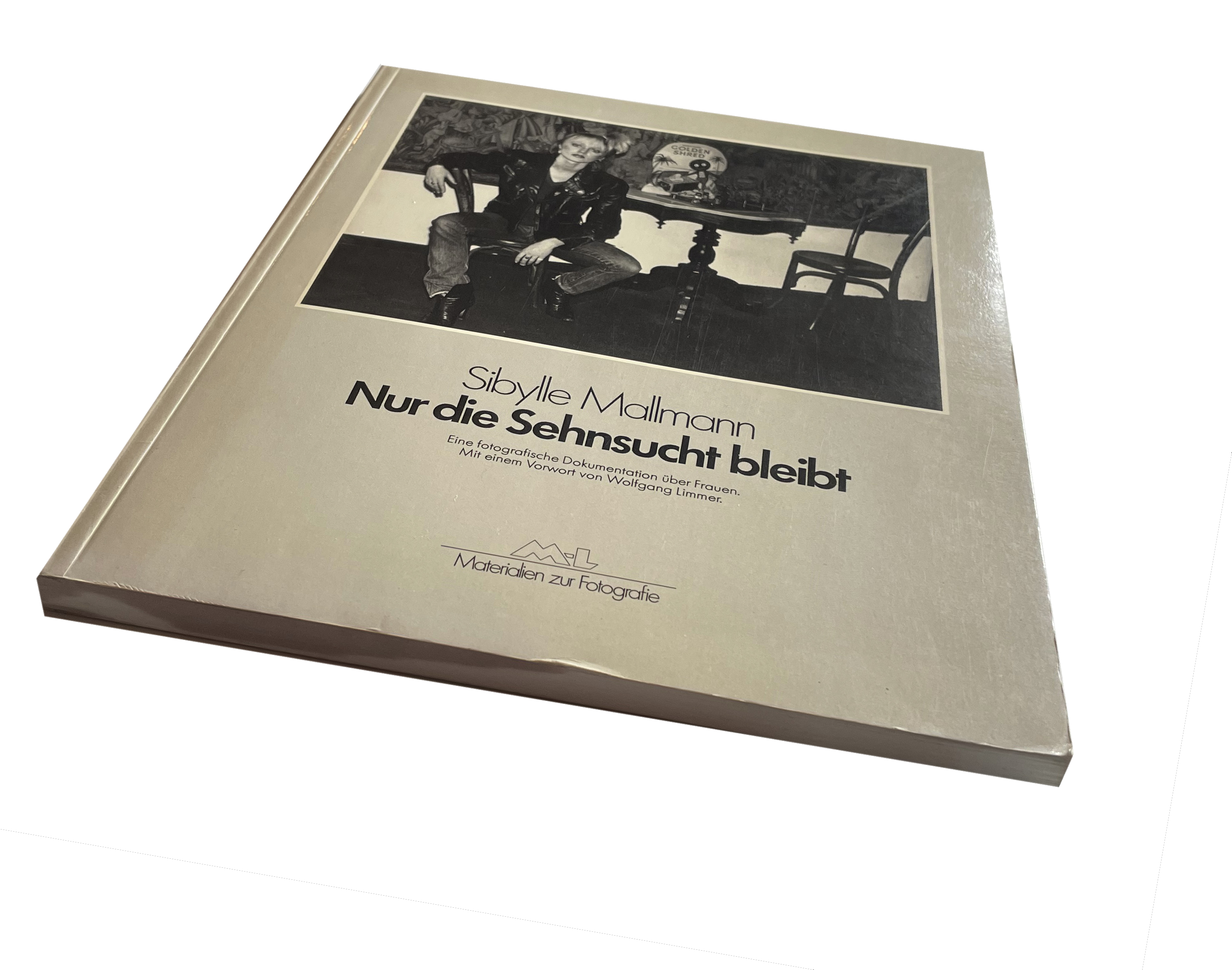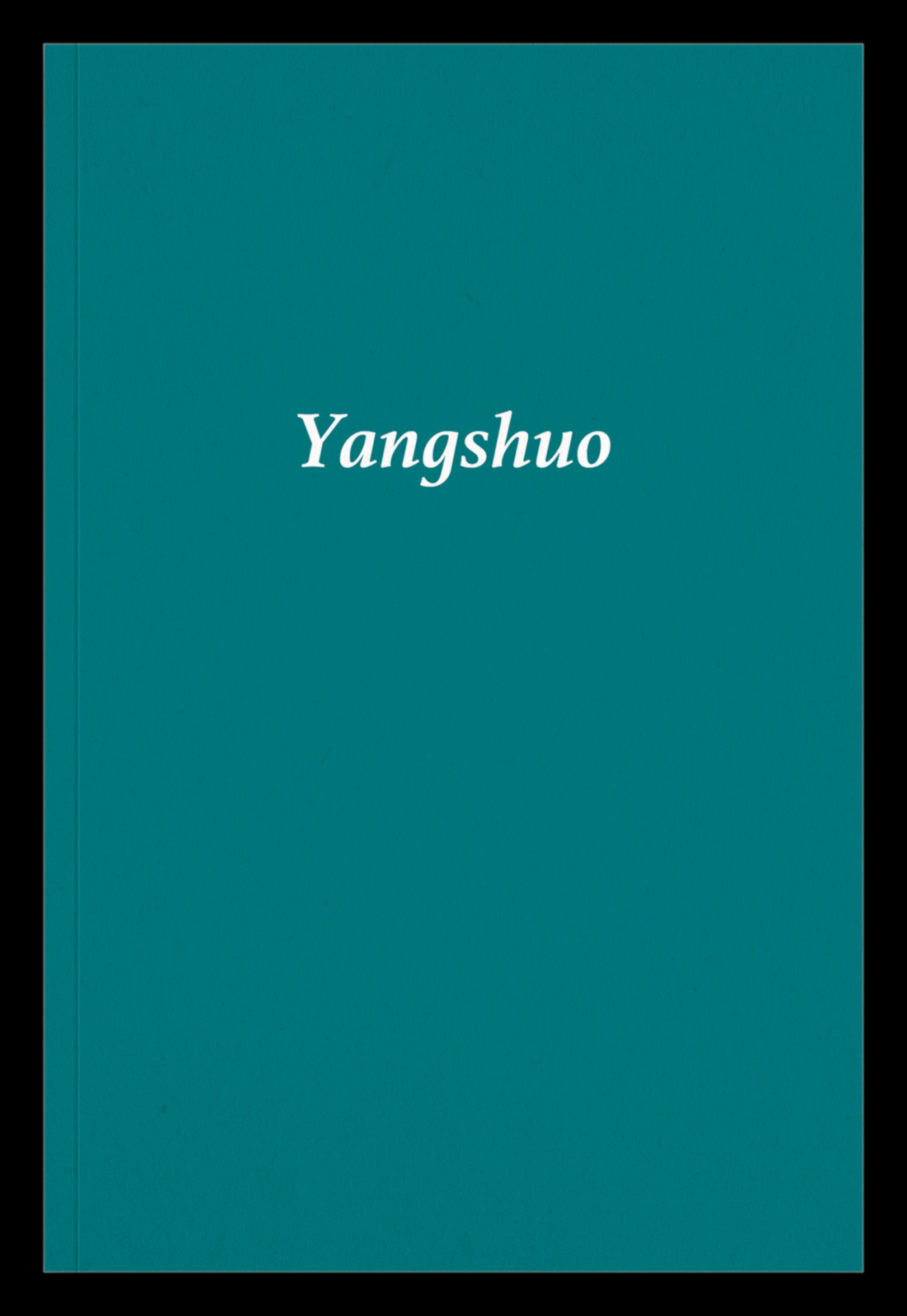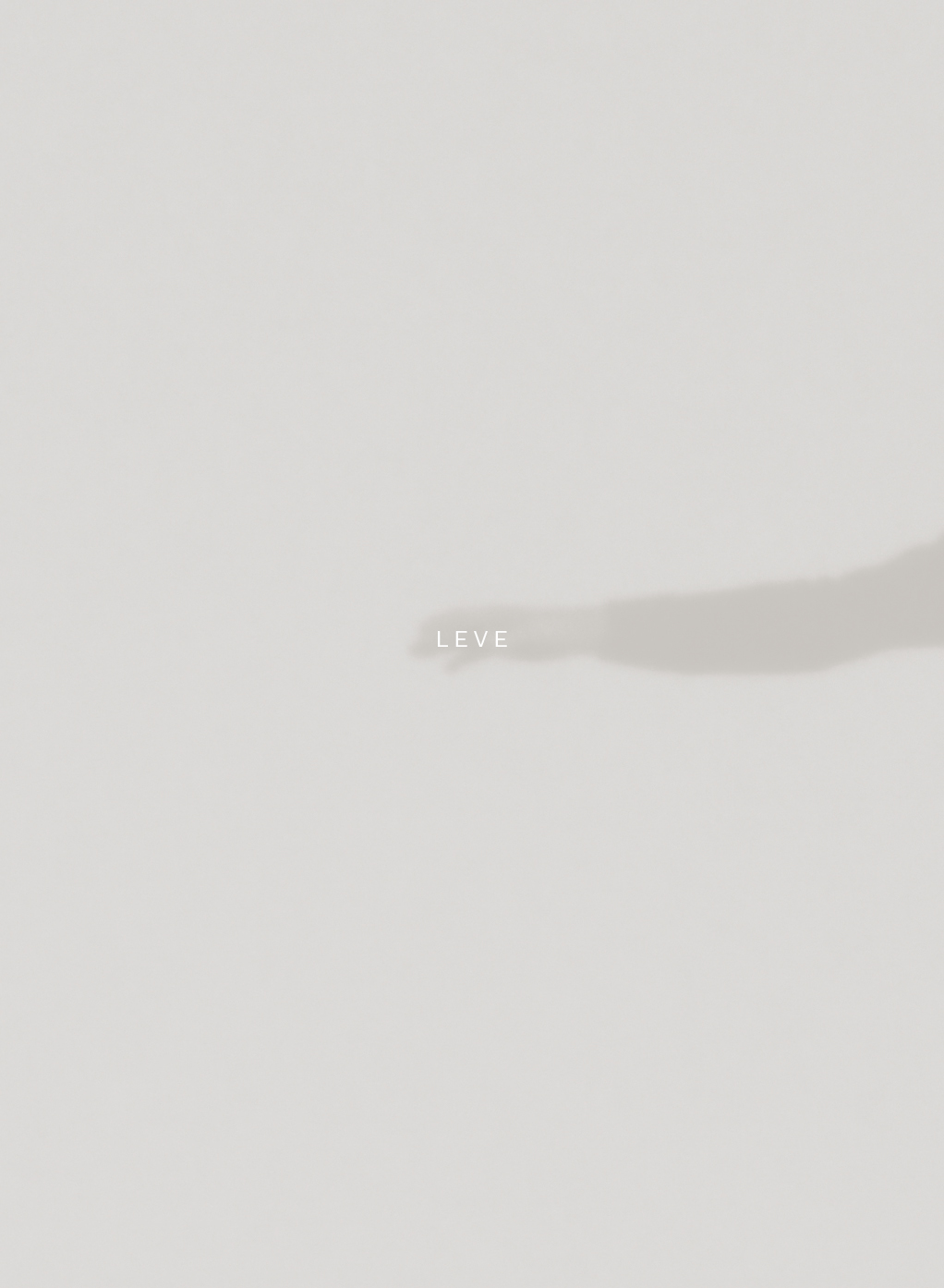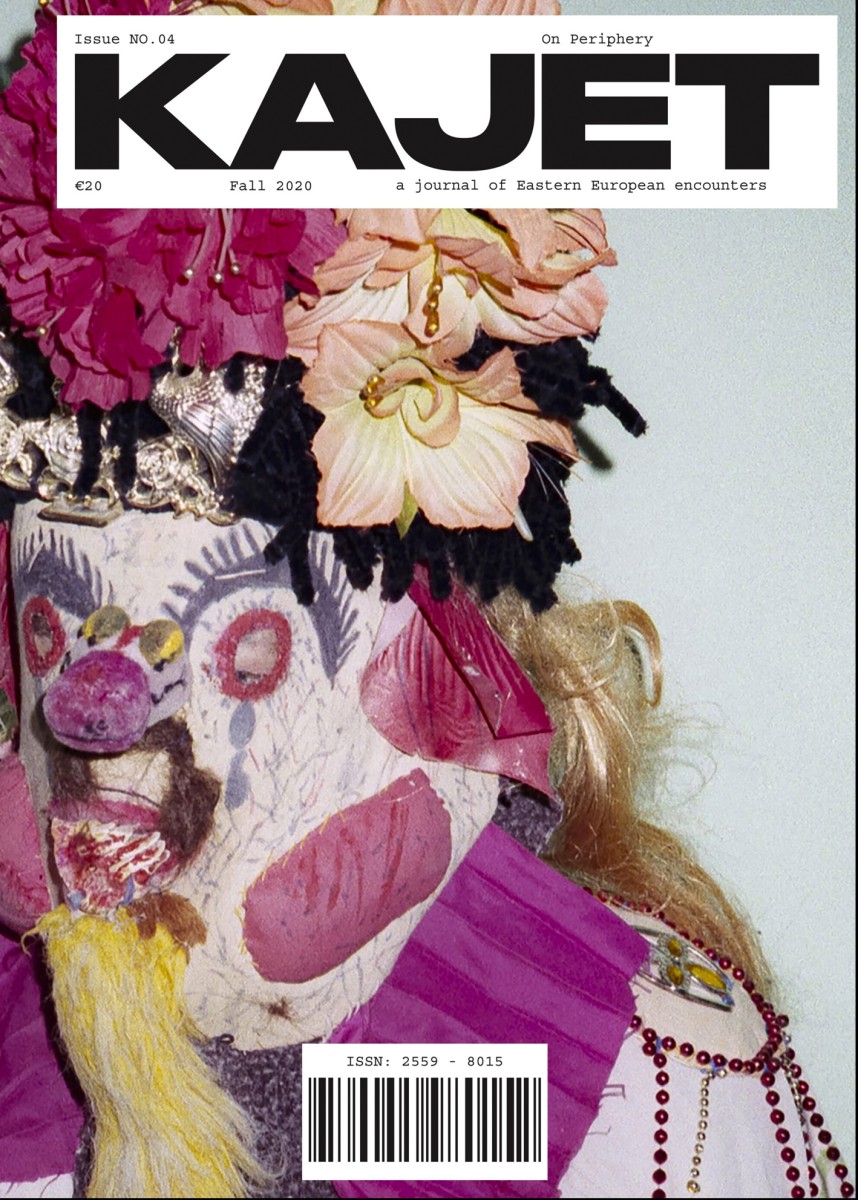
Kajet No.04
Dispozitiv Books
TAMBOURINE
2020
España
Madrid
Petrică Mogoș
Laura Naum
Regular Practice
2559 - 8015
328
In this issue:
Attila Antal, Patricia Becuș, Marek M. Berezowski, Dragoș Boțcău, Julien Britnic, Carnation Studio (Horațiu Șovăială & Raya al Souliman), Alexandra Chiriac, Roberta Curcă, Dezarticulat, Andreea Daniela Dițu, Alex Fisher, Stefan Fraunberger, Flóra Gadó, Anton Hryhorenko, Daniel Hüttler, Ștefan Ionescu-Ambrosie, Jan Jurczak, Kadna, Vicky Kluzik, Ramin Mazur, Zsolt Miklósvölgy, Marija Nemčenko, Karol Radziszewski, Christina Novakov-Ritchey, Johanna Rannula, Alin Răuțoiu, Patrycja Rozwora, Elizabeth Short, Horațiu Șovăială, Ioana Țîștea, Lucian Varvaroi, Laura Naum, Petrică Mogoș
Developed, designed & printed in Bucharest, Romania, Kajet is a journal of Eastern European encounters that seeks to be more than just a mere signal from the periphery—essentially, to move beyond a purely anecdotal understanding of Eastern Europe.
"In the case of Eastern Europe, it is the very fluid history of the region that makes it the perfect site for critically delving into its troubled relationship with the notion of utopia. That is why, especially here, we must continue to juxtapose the current desolate order with a well-established ideal. Focusing on revolts and rebels, on insurgency and visionaries, on the speculative and idealistic, the second issue of KAJET Journal seeks to decipher and resurface utopian alternatives. At a time when the guarantee of liberal Westernism has reached a certain point of saturation in Eastern Europe, we’ve come to realise that we have been tricked into distrusting the existence of an alternative modernity, dooming ourselves to decades of stagnating, catching up, and forever emerging. In fact, utopia itself has become utopian—a forsaken relic of the past, a symbol of failure.
Storming palaces and booing speeches bear no meaning any longer, for these counter-hegemonic tactics have become largely ineffectual. Therefore, we ultimately need to replace these excessive sentiments of powerlessness and disorientation with a new futurology of the East. We need to proclaim the end of the end of history, to reclaim the future, and to start building. Eventually, we end up asking ourselves: Is there room for utopia after utopia?"
By producing an archaeology of the periphery, the fourth issue of Kajet explores the possibility of a revised vision for the future of Europe, not in a totalising manner, but in a critical, reflexive way. Kajet alerts the centre of the possibility that there is not one world, not one history, not one future without alternatives, but rather many disparate worlds that are being lived at different speeds, according to different rhythms, producing contradictory histories and futures. Paradoxes are therefore necessary: to remain local but open, homogenous but plural, rooted yet adrift, anchored yet aware of what happens beyond one’s proximity. Our periphery is European and elsewhere altogether.









